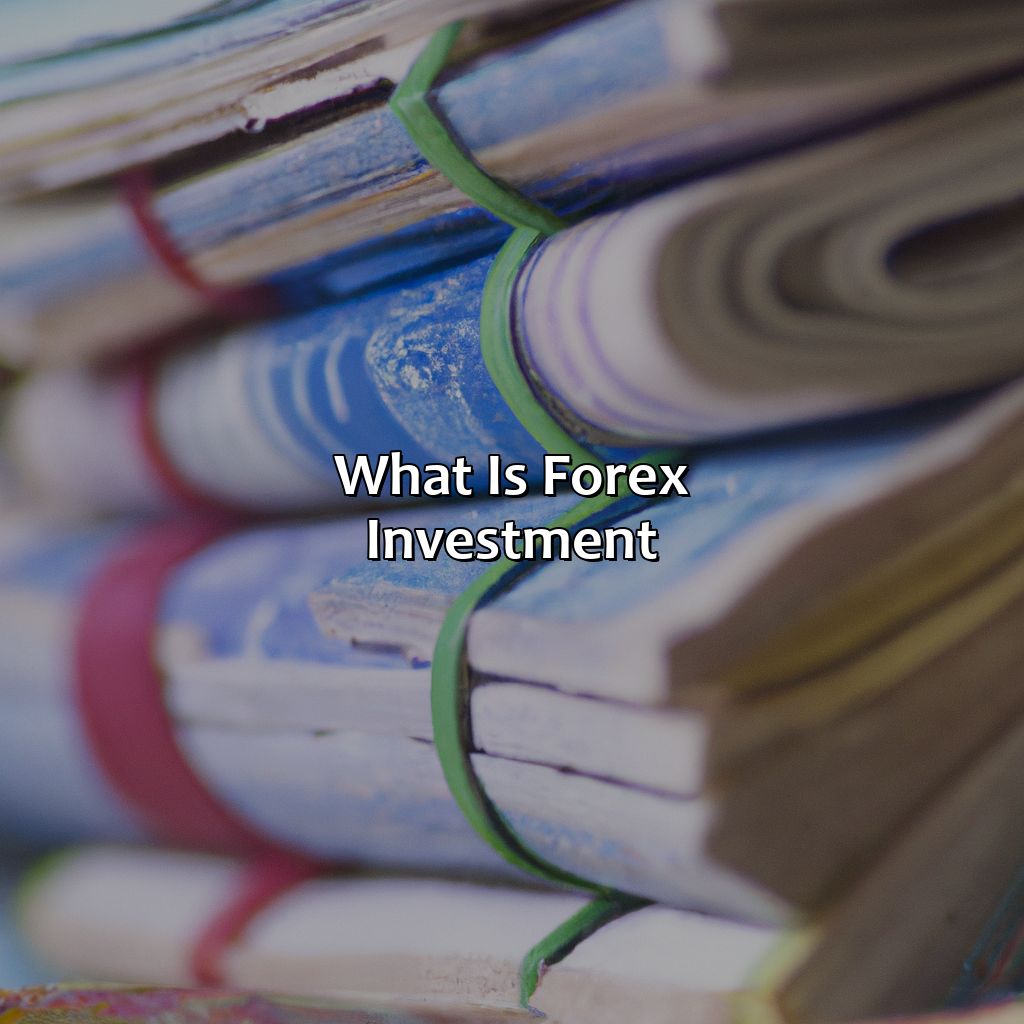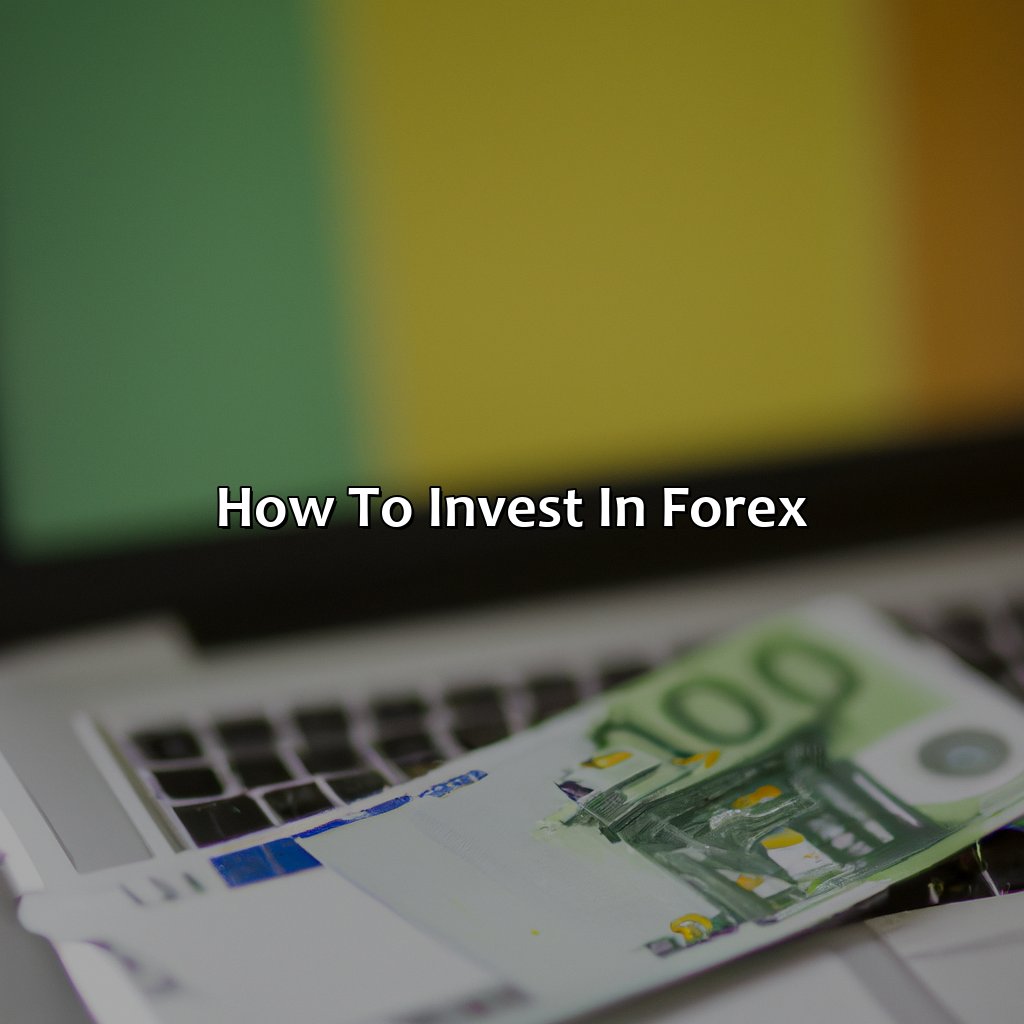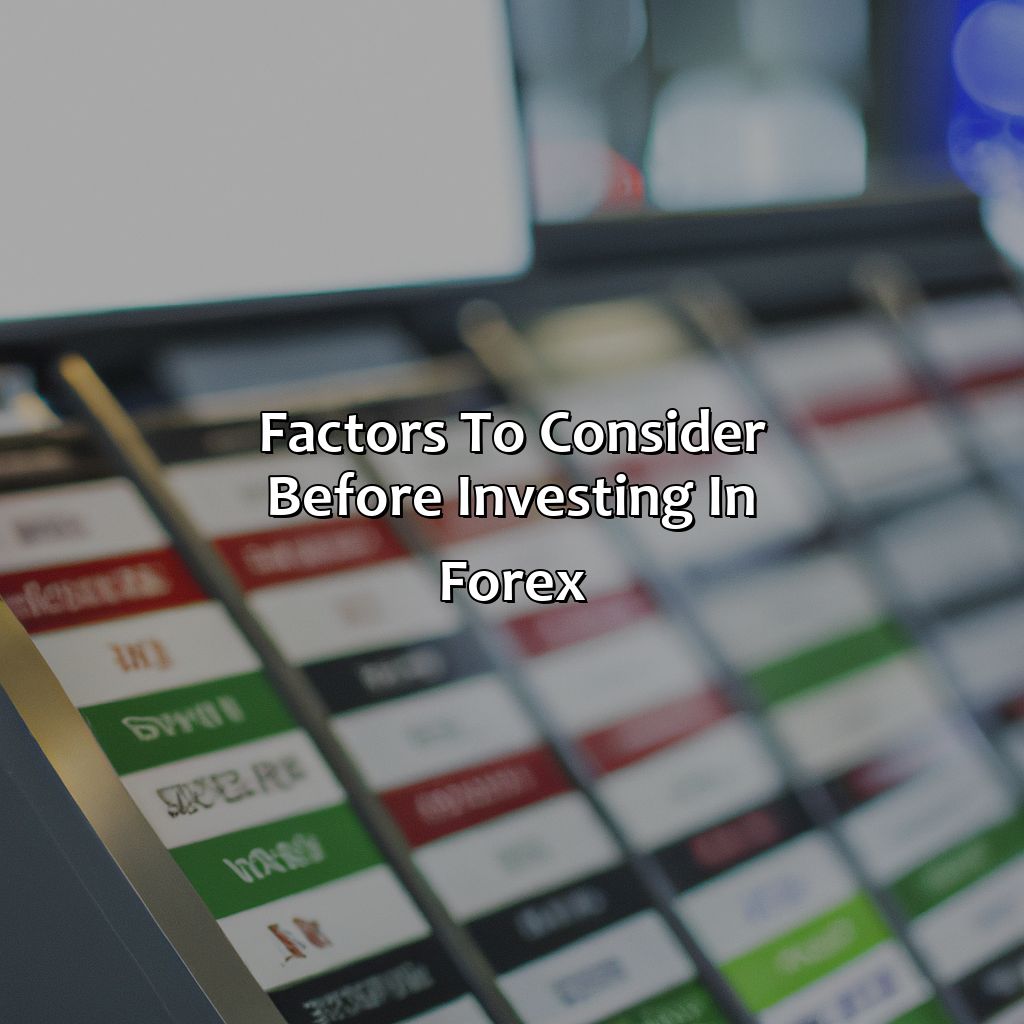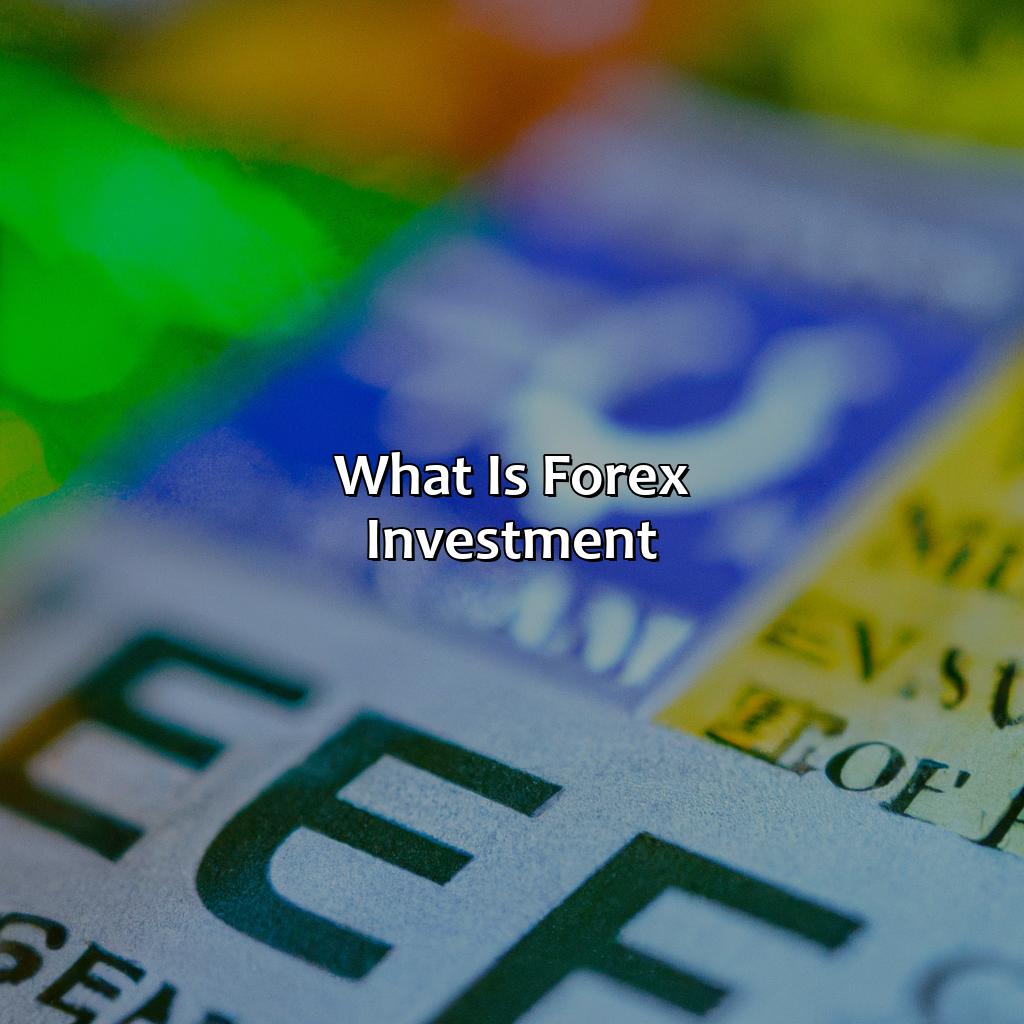What Is Forex Investment?
Key Takeaway:
- Forex investment is investing in the foreign exchange market, where investors trade currencies. It is the largest financial market globally, with high liquidity and high volatility, making it an attractive option for potential investors.
- Forex investment works by buying or selling currencies with the goal of profiting from the fluctuations in exchange rates. Investors can utilize a range of strategies, including technical analysis, fundamental analysis, and automated trading, to make informed investment decisions.
- The advantages of forex investment include potential for high profits, accessibility due to the 24-hour trading schedule, and the ability to leverage investments. However, the risks include high volatility, complex market dynamics, and potential for significant losses.
Are you looking to diversify your investment portfolio? Forex investment is a great way to achieve that goal, offering a range of benefits. In this blog, you’ll discover everything you need to know about forex investment.
What is Forex Investment?
Forex investment involves buying and selling currencies through the foreign exchange market. It is a decentralized market where people trade currencies based on the current exchange rates. This type of investment is popular due to its global reach and 24-hour trading capabilities.
Forex investment requires knowledge of currency markets and the ability to predict market trends. Traders use technical and fundamental analysis to evaluate currency pairs and determine their investment decisions. They may also use leverage to increase their profits, but it comes with a higher risk.
It is important to note that Forex investment is not a get rich quick scheme, but rather a long-term investment strategy. It requires discipline, patience, and a systematic approach to trading. Success in Forex investment requires a solid trading plan, risk management strategies, and continuous education.
Pro Tip: Consider using a demo Forex trading account to gain experience and test your trading strategies before investing real money.

Image credits: retiregenz.com by Adam Washington
How to Invest in Forex?
Investing in Forex: A Professional Guide
Looking to invest in forex? Here’s a professional guide to help you get started.
- Choose a Broker
Select a reputable forex broker with transparent fees, reliable execution, customer service, and regulatory compliance. - Open a Forex Trading Account
Follow the broker’s instructions and provide valid personal and financial information to create a trading account. - Fund Your Account
Deposit funds into your forex account via bank transfer, credit/debit card, e-wallet, or other payment methods accepted by the broker. - Choose a Trading Platform
Select a user-friendly and compatible platform that suits your trading style, technical needs, and risk appetite. - Analyze the Market
Analyze the forex market using technical and fundamental tools such as charts, indicators, news, events, and macroeconomic data. - Execute Your Trades
Execute your trades using proper risk management techniques such as stop-loss, take-profit, scaling-in, or scaling-out strategies.
Remember, forex trading is a complex and risky activity that requires proper education, practice, and discipline. Never invest more than you can afford to lose and seek professional advice if needed.
Don’t miss out on the potential profits and excitement of forex trading. Start your journey today!

Image credits: retiregenz.com by Adam Woodhock
Factors to consider before investing in Forex
Before investing in Forex, it is crucial to consider various key factors. Understanding the market trends, analyzing the risks, and choosing a reliable broker are some of the factors that should be considered.
It is essential to choose a Forex broker that is regulated by a reputable authority such as FCA, NFA, or ASIC. Also, consider the broker’s reputation, trading platform, fees, and spreads. Moreover, it’s best to start with a demo account to learn and practice before investing real money.
In addition to these factors, it is necessary to have a well-defined investment plan that includes your goals, risk tolerance, and the amount you’re willing to invest. Setting stop-loss and take-profit orders helps in minimizing losses and maximizing profits.
Investing in Forex can be lucrative, but it requires knowledge and skills in technical and fundamental analysis. Before making any investment decisions, always keep yourself updated on the latest news and market trends.

Image credits: retiregenz.com by Yuval Duncun
Some Facts About Forex Investment:
- ✅ Forex investment is the act of buying or selling currencies in order to make a profit. (Source: Investopedia)
- ✅ Forex investment is the most liquid market in the world, with an estimated $5.3 trillion traded daily. (Source: FXStreet)
- ✅ Forex investment can be done through brokers, who provide access to the market and offer various trading platforms and tools. (Source: The Balance)
- ✅ Forex investment involves significant risk and requires knowledge, skill, and discipline to be successful. (Source: FXCM)
- ✅ Forex investment is influenced by a variety of factors, including geopolitical events, economic indicators, and central bank policies. (Source: Forbes)
FAQs about What Is Forex Investment?
What is forex investment?
Forex investment refers to investing in the foreign exchange market, wherein the objective is to buy or sell currency pairs with the aim of making a profit from the price movements.
How does forex investment work?
Forex investment involves trading currency pairs, such as buying EUR/USD or selling GBP/USD, with the expectation that the price will move in a favorable direction. When the price moves in the predicted direction, the investor makes a profit.
What are the benefits of forex investment?
Forex investment offers several benefits, including high liquidity, low transaction costs, and extensive trading hours. Additionally, forex investment provides investors with the opportunity to diversify their portfolio since the foreign exchange market is highly interconnected with global economic and political developments.
What are the risks of forex investment?
Forex investment carries several risks, such as market volatility, leverage risks, and counterparty risks. Additionally, forex investment is affected by global economic and political developments, which are difficult to predict, and can lead to sudden price fluctuations and losses.
How can I start forex investment?
Starting forex investment involves opening an account with a forex broker, funding the account, and initiating trades using a trading platform. However, before starting forex investment, it is recommended to learn about the market, trading strategies, and risk management principles.
Which currencies are commonly traded in forex investment?
The most commonly traded currencies in forex investment include US dollar, euro, Japanese yen, British pound, Swiss franc, Australian dollar, and Canadian dollar.
